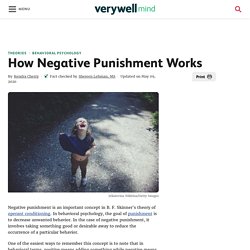

In fact, parenting styles will need to shift particularly in dealing with adolescents.
How do I get my teenagers to listen to me? This is probably what most parents ask themselves.
Punishment or Reinforcement? Which should parents use when dealing with teenage children?
Why Teenage Brains Are So Hard to Understand. Parents Overestimate How Warm They Seem to Their Teenagers. What’s Going On in the Teenage Brain?
A child’s body goes through physical changes that are obvious to all parents.

Less obvious are the vital changes taking place in a child’s brain, particularly as she enters her teenage years. The brain, after all, is part of the body and, more importantly, is the organ that controls — or tries to control — the body’s activities. Teenagers confront challenges, pressures, stresses, temptations, and asks in brains that are not yet fully developed.
It’s not just that teenagers haven’t had the time and experience to acquire a wide sense of the world; quite simply, their brains just haven’t physically matured yet. Dealing with pressure and stress is no small challenge for a fully mature brain, much less one that’s in transition from childhood to adulthood and in transition from concrete to abstract thinking. Growing a Brain Like their bodies, different children’s brains develop at different speeds. Not only that, brain scans shows that parts of the brain don’t grow the same. Beyond Brain Growth. 4 Types of Parenting Styles and Their Effects on Kids. Your parenting style can affect everything from how much your child weighs to how she feels about herself. It's important to ensure your parenting style is supporting healthy growth and development because the way you interact with your child and how you discipline her will influence her for the rest of her life.
Researchers have identified four types of parenting styles:1 AuthoritarianAuthoritativePermissiveUninvolved Each style takes a different approach to raising children and can be identified by a number of different characteristics. Operant conditioning explained simply. BF Skinner Operant Conditioning Theory. Skinner’s Operant Conditioning: Rewards & Punishments. The Use of Reinforcement and Punishment in Shaping a Child's Behavior. Untitled. What Is 'positive Punishment'? Definition And Real-World Examples. The Study of Punishment in Psychology. How Negative Punishment Works. Negative punishment is an important concept in B.

F. Skinner's theory of operant conditioning. In behavioral psychology, the goal of punishment is to decrease unwanted behavior. In the case of negative punishment, it involves taking something good or desirable away to reduce the occurrence of a particular behavior. One of the easiest ways to remember this concept is to note that in behavioral terms, positive means adding something while negative means taking something away. Positive Reinforcement - Tips for teaching and parenting. Using Positive Reinforcement.
Positive Reinforcement - The Big Bang Theory. Positive and Negative Reinforcement. Teens May Learn Best with Positive Reinforcement. A new study finds that adolescents focus on rewards and are less able to learn to avoid punishment or consider the consequences of alternative actions.

University College-London investigators compared how adolescents and adults learn to make choices based on the available information. Investigators tracked the way in which 18 volunteers aged 12-17 and 20 volunteers aged 18-32 completed tasks in which they had to choose between abstract symbols. Each symbol was consistently associated with a fixed chance of a reward, punishment, or no outcome. As the trial progressed, participants learned which symbols were likely to lead to each outcome and adjusted their choices accordingly. Adolescents and adults were equally good at learning to choose symbols associated with reward, but adolescents were less good at avoiding symbols associated with punishment. The study appears in PLOS Computational Biology. “From this experimental lab study we can draw conclusions about learning during adolescence.
How to Reward Your Teen for Good Behavior. Teenagers are young adults who are trying to learn the ways of the world.

When they do something great at school or at home or simply make a healthy decision, parents can give them a reward. The reward does not have to be money, but it is a nice way to say "thank you" or "I'm proud of you. " Teens need this positive reinforcement because it shows them that they are on the right track.1 It is also a good life lesson that you can pass on: good things happen to good people. 12 Examples of Positive Punishment & Negative Reinforcement. You might be thinking that “positive punishment” sounds like an oxymoron, after all, how can punishment be positive?

Not many people “like” punishment, right? The disconnect in understanding this concept comes from the usage of the word “positive;” here at PositivePsychology.com, we generally use the term “positive” to refer to things that are inherently good, things that are life-giving, and things that promote thriving and flourishing. The concept of positive punishment comes from a very different era and a very different perspective on psychology; namely, the 1930s and behaviorism. What Is the Difference Between Reinforcement and Punishment? In a perfect world, you wouldn't need to worry about discipline, but all parents face situations that require intervention.

The goal of discipline is to decrease the undesirable behaviors and increase the positive choices your child makes. Both reinforcement and punishment are ways to achieve that goal, but the methods have subtle differences that may make one better suited for your child. Reinforcement Basics Reinforcement focuses on increasing the desired behaviors in your child. Parenting Teens: When It Comes To Learning, Positive Reinforcement Trumps Punishment. Teens generally aren’t afraid to defy authority.

Generations of parents know this, having tried different strategies for getting their adolescents to do what they ask — often in attempts to keep them safe and help pave a path toward success. Now, a new study shows that rewards, rather than punishments, could be the way to get them to cooperate. Researchers at the University College London asked 18 volunteers aged 12 to 17 and 20 volunteers aged 18 to 32 to complete both a learning task and post-learning task in which they chose between abstract symbols, each associated with a fixed chance of reward, punishment, or no outcome. As the trial progressed, participants learned which symbols were likely to lead to each result and adjusted their choices accordingly. Adults and teens alike proved equally capable of learning to be motivated by rewards, but the adults learned to avoid symbols associated with punishment while the adolescents did not.
Source Stefano Palminteri, Emma J. Parenting Teens: The Best Method? Encourage the desired Behaviour. Be Consistent and Patient. Conclusion.